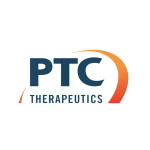Welcome to our dedicated page for Ptc Therapeutics news (Ticker: PTCT), a resource for investors and traders seeking the latest updates and insights on Ptc Therapeutics stock.
PTC Therapeutics, Inc. (NASDAQ: PTCT) is a global biopharmaceutical company focused on clinically differentiated medicines for children and adults living with rare disorders. The PTCT news feed on Stock Titan aggregates company announcements, financial updates and regulatory milestones that PTC discloses through press releases and SEC filings.
Investors following PTCT news can see updates on the commercial performance and global rollout of products such as Sephience (sepiapterin) for phenylketonuria (PKU), as well as revenue contributions from the company’s Duchenne muscular dystrophy franchise, which includes Translarna (ataluren) and Emflaza (deflazacort). News items also cover royalty revenue from Evrysdi (risdiplam) and changes in royalty arrangements, such as the sale of certain Evrysdi royalty rights to Royalty Pharma.
PTC Therapeutics regularly reports quarterly and annual financial results, including total revenue, product revenue, royalty and collaboration revenue, and details on GAAP and non-GAAP R&D and SG&A expenses. Corporate updates often highlight pipeline and regulatory developments, including FDA meetings for programs like votoplam in Huntington’s disease and vatiquinone in Friedreich’s ataxia, as well as ongoing review of the Translarna NDA.
The company also issues news about regulatory approvals and launches in different regions, such as Sephience approvals in the EU, US and Japan, and about R&D-focused events and investor conference presentations. In addition, PTC discloses equity inducement grants under Nasdaq Listing Rule 5635(c)(4), illustrating its use of stock options and restricted stock units as part of employee compensation.
By monitoring the PTCT news page, readers can track how product launches, regulatory decisions, collaborations, royalty transactions and capital markets activities shape the company’s progress in the rare disease biopharmaceutical sector.
Summary not available.
Summary not available.
Summary not available.
Summary not available.
Summary not available.
Summary not available.
Summary not available.
Summary not available.
Summary not available.
Summary not available.

